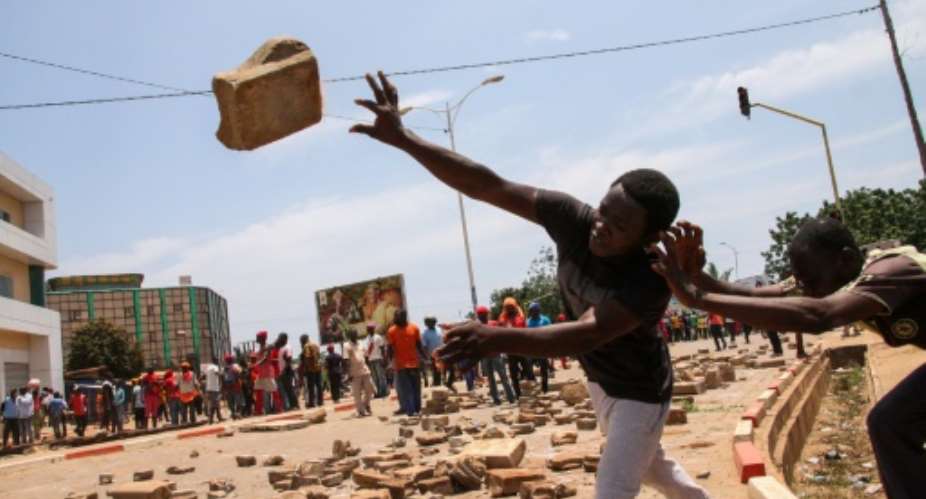Since August, Togo’s opposition has organised regular protests against demanding the departure of embattled President Faure Gnassingbe, whose family has ruled this west African nation for five decades. By MATTEO FRASCHINI KOFFI (AFP/File)
Togo’s controversial constitutional reforms have reignited political unrest across the country, sparking mass protests and raising alarms about regional security implications. The unrest stems from widespread public suspicion that the constitutional shift—ostensibly from a presidential to a parliamentary system—is a strategic manoeuvre by President Faure Gnassingbé to extend his two-decade-long hold on power.
While the government has hailed the reforms as a democratic breakthrough, critics have slammed the process as rushed and opaque, accusing the regime of sidelining public consultation.
In a strongly worded press statement issued on Monday, 30 June, the Executive Secretary of the Global Security for Africa Research and Good Governance (GLOSARGG), Francis Ahovi, condemned the Togolese government’s handling of the crisis and warned of broader consequences for West Africa.
He criticised the heavy-handed crackdown on demonstrators, marked by arrests, injuries, and a clampdown on media freedom, warning that such repressive tactics are fuelling radicalisation, particularly among disenfranchised youth.
“This is not merely a Togolese issue,” Mr Ahovi stressed. “It forms part of a broader West African pattern of shrinking democratic space, and its destabilising ripple effects could easily spread to neighbouring Ghana, Benin, and Burkina Faso.”
He warned that the deteriorating situation in Togo risks becoming a corridor for arms trafficking, insurgent infiltration, and population displacement.
The humanitarian implications are already dire. Basic services such as healthcare, education, and food supply are being disrupted, while civil liberties, including freedom of expression and association, are under siege.
Mr Ahovi urged immediate and coordinated intervention to de-escalate tensions and avert full-scale conflict.
As a security and governance analyst, he proposed a five-point roadmap to restore peace and legitimacy.
His recommendations include an inclusive national dialogue mediated by ECOWAS and the African Union, the suspension of the current constitutional reforms in favour of a public-led review process, regional security monitoring, the lifting of restrictions on the media and humanitarian access, and, if consensus fails, the conduct of early and transparent parliamentary elections under international observation.
“Togo’s crisis is a litmus test for the region’s democratic resilience. Silence or delay will only embolden authoritarianism and deepen insecurity. The time to act is now,” he said.
DISCLAIMER: The Views, Comments, Opinions, Contributions and Statements made by Readers and Contributors on this platform do not necessarily represent the views or policy of Multimedia Group Limited.
DISCLAIMER: The Views, Comments, Opinions, Contributions and Statements made by Readers and Contributors on this platform do not necessarily represent the views or policy of Multimedia Group Limited.


